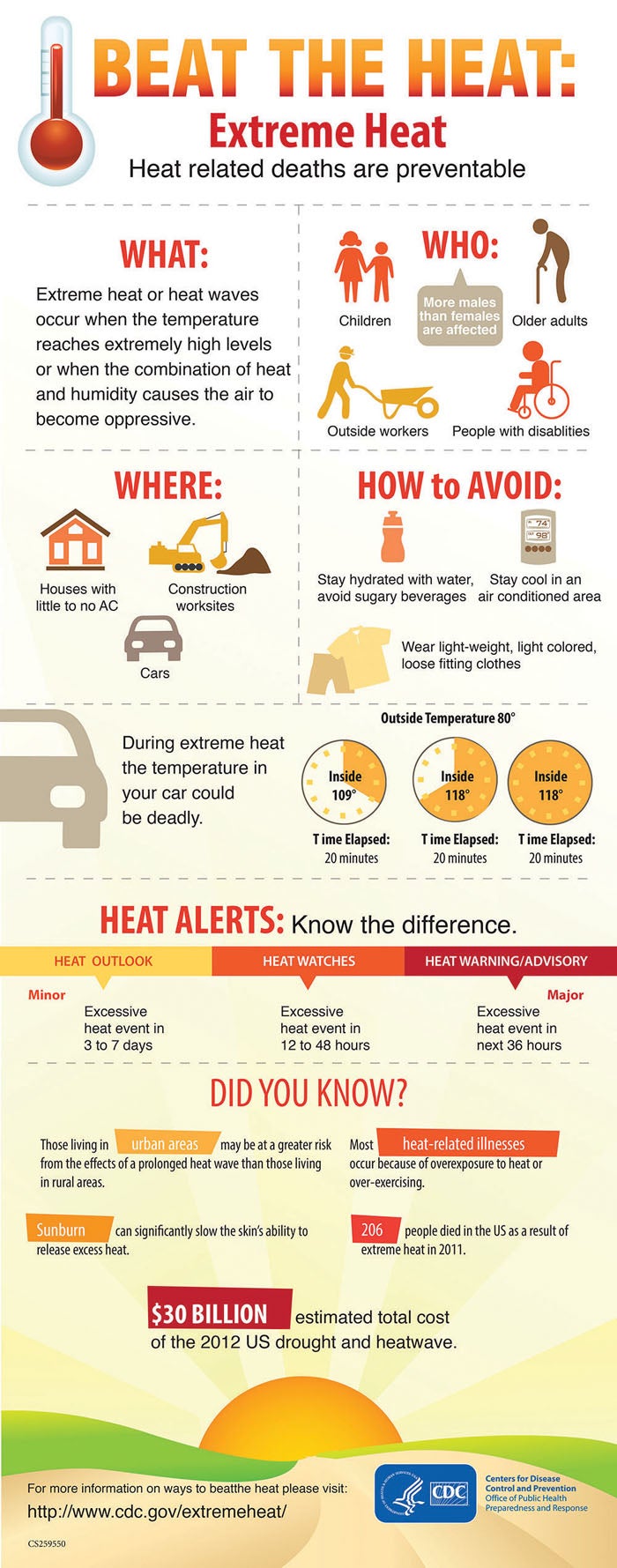Health officials warn of heat-related illnesses
Published 2:50 pm Wednesday, July 12, 2017
RALEIGH – Public health officials at the N.C. Department of Health and Human Services are urging people to take extra precautions against heat-related illnesses as daytime temperatures are heading into the mid- to upper-90s.
Parts of the state will face the warmest temperatures of the year over the next few days.
There were 263 emergency department visits for heat-related illness statewide July 2-8, according to the North Carolina Heat Report.
Most people seeking emergency care said they were gardening, hiking, attending outdoor gatherings, or working on landscaping and roofing projects.
Other cases were related to alcohol use and diabetes.
The report is posted weekly at http://publichealth.nc.gov/chronicdiseaseandinjury/heat.htm.
“As we approach these dangerously hot temperatures in North Carolina, we urge residents to take precautions when doing outside activities,” said Dr. Zack Moore, state epidemiologist. “Whether you are outside for work or recreation, make sure you are drinking plenty of fluids to minimize risk of heat-related illness.”
Symptoms of heat-related stress and illness include muscle cramps, fatigue, weakness, dizziness, fainting, headaches, nausea and vomiting. They can be avoided with proper precautions.
Children, older adults, outdoor workers and those with chronic health conditions are most vulnerable to illness during the hot summer months.
To reduce risk of heat-related illness:
- Drink plenty of fluids.
- Take breaks in cool or air-conditioned environments if spending multiple hours outside.
- Check with your physician about how to stay safe if you take medicines that make you more vulnerable to heat, such as drugs for high blood pressure, migraines, allergies, muscle spasms, mental illness and tranquilizers.
- Reduce time spent outside during the hottest part of the day, usually 11 a.m.-4 p.m.
- Never leave children or pets unattended in vehicles. Temperature levels inside a car can reach a lethal level in a matter of minutes.
For more information on how to prevent heat-related health problems and to learn about heat-related illness in North Carolina, visit http://publichealth.nc.gov/chronicdiseaseandinjury/heat.htm.




